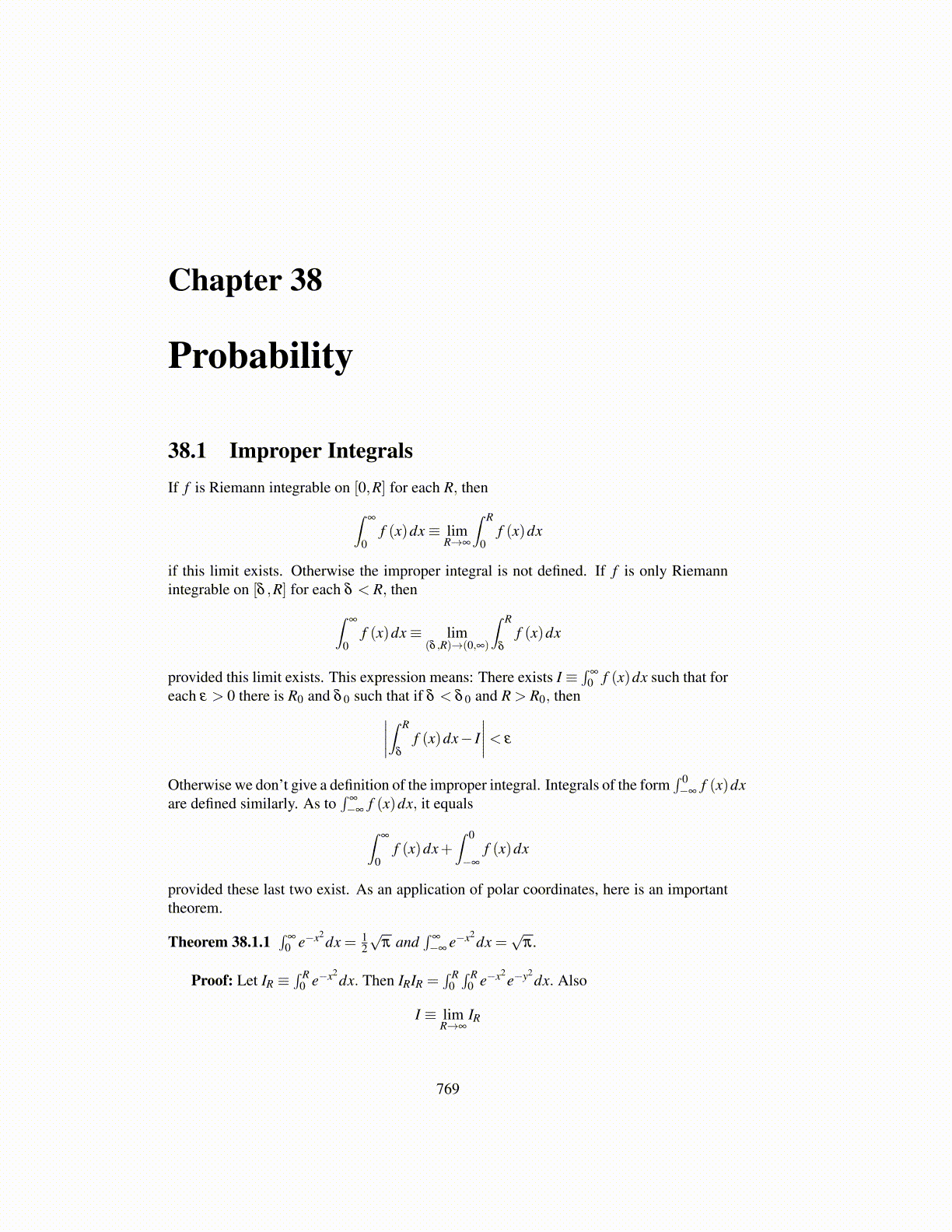
Chapter 38
Probability
38.1 Improper IntegralsIf f is Riemann integrable on [0,R] for each R, then∫
∞
0f (x)dx≡ lim
R→∞
∫ R
0f (x)dx
if this limit exists. Otherwise the improper integral is not defined. If f is only Riemannintegrable on [δ ,R] for each δ < R, then∫
∞
0f (x)dx≡ lim
(δ ,R)→(0,∞)
∫ R
δ
f (x)dx
provided this limit exists. This expression means: There exists I ≡∫
∞
0 f (x)dx such that foreach ε > 0 there is R0 and δ 0 such that if δ < δ 0 and R > R0, then∣∣∣∣∫ R
δ
f (x)dx− I∣∣∣∣< ε
Otherwise we don’t give a definition of the improper integral. Integrals of the form∫ 0−∞
f (x)dxare defined similarly. As to
∫∞
−∞f (x)dx, it equals∫
∞
0f (x)dx+
∫ 0
−∞
f (x)dx
provided these last two exist. As an application of polar coordinates, here is an importanttheorem.
Theorem 38.1.1∫
∞
0 e−x2dx = 1
2√
π and∫
∞
−∞e−x2
dx =√
π .
Proof: Let IR ≡∫ R
0 e−x2dx. Then IRIR =
∫ R0∫ R
0 e−x2e−y2
dx. Also
I ≡ limR→∞
IR
769